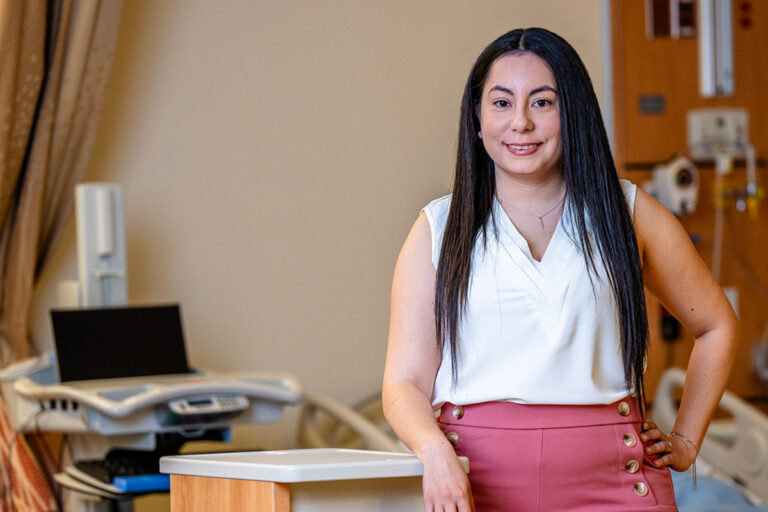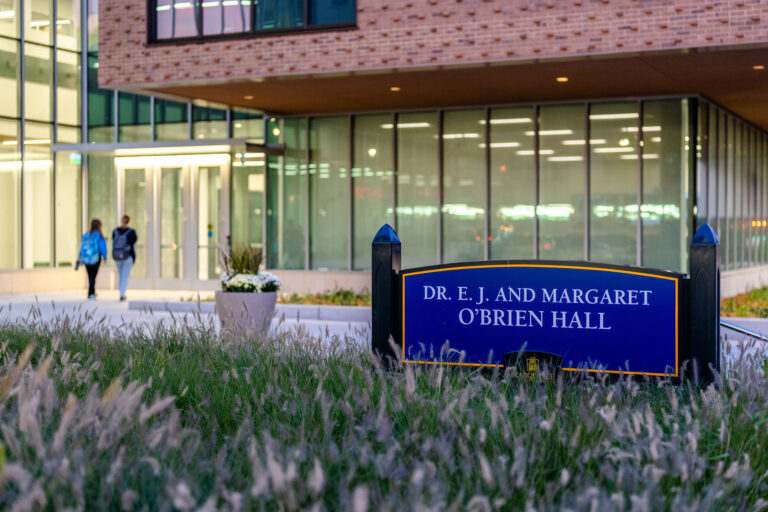In an effort to promote research and scholarship conducted by Marquette faculty and staff, the Office of Marketing and Communication and the Office of Research and Sponsored Programs have partnered to present a monthly recap of recent grants awarded to faculty and staff.
This report will be featured in Marquette Today each month.
The following grants were awarded to university faculty and staff in January 2020.
 Marquette professor awarded research grant for foundational computer science education (Dr. Dennis Brylow)
Marquette professor awarded research grant for foundational computer science education (Dr. Dennis Brylow)
Monitoring the performance of a subsurface gravel wetland
$75,000 – Fund for Lake Michigan
 Walter McDonald, assistant professor or civil, construction and environmental engineering in the Opus College of Engineering
Walter McDonald, assistant professor or civil, construction and environmental engineering in the Opus College of Engineering
Abstract: While subsurface gravel wetlands hold significant promise as a green infrastructure practice to mitigate non-point source pollutants, this technology has not been widely adopted in Wisconsin due to a lack of monitoring studies and technical design standards. This project seeks to address this gap through a monitoring study of flow and nutrient fluxes in a subsurface gravel wetland in Oshkosh, resulting in actionable data that can guide the development of state-wide technical standards and support the broader adoption of a technology that can reduce pollution in Lake Michigan.
REU Site: Data Science Across Disciplines
$404,683 – National Science Foundation
 Praveen Madiraju, associate professor of computer science (PI), and Dr. Dennis Brylow, professor and vice chair of computer science, in the Klingler College of Arts and Sciences
Praveen Madiraju, associate professor of computer science (PI), and Dr. Dennis Brylow, professor and vice chair of computer science, in the Klingler College of Arts and Sciences
Abstract: This Data Science Across Disciplines Research Experiences for Undergraduates site will help to address a critical need for researchers who can think creatively to solve problems in data science in various interdisciplinary fields, as well as the workforce and opportunities to train the next generation of researchers to tackle the problems in data science. Students will be exposed to a variety of data science research projects that are bound to stimulate passion for data science research and help them seek either industry careers and/or graduate degrees in this area. Host students will also serve as peer mentors and brand ambassadors for data science research at their home institution to bring more awareness to the field.
Open labeled quasi experimental pilot study of prebiotic fiber supplementation to modify gastrointestinal symptoms, gut microflora and weight gain patterns in healthy pregnant women
$5,000 – Sigma Theta Tau Delta Gamma At-Large Chapter-Milwaukee


Heidi Paquette, M.S., RN, NNP-BC, clinical instructor and OB clinical course coordinator (PI), and Lisa Hanson, RN, CNM, FACNM, FAAN, professor and director of the nurse-midwifery program, in the College of Nursing
Abstract: The purpose of this study is to determine if antenatal prebiotics modify gastrointestinal symptoms of pregnancy, ratios of gut microflora and gestational weight gain patterns. Interventions aimed at reducing GI symptoms during pregnancy and supporting recommended GWG may provide health care providers with best practice tools.
Novel approaches to the modulation of protease-activated receptor signaling
$455,662 – National Institutes of Health
 Christopher Dockendorff, assistant professor of chemistry in the Klingler College of Arts and Sciences
Christopher Dockendorff, assistant professor of chemistry in the Klingler College of Arts and Sciences
Abstract: The goal of this research is to develop novel small molecules for the control of protease-activated receptors, and to determine how PARs can be modulated by certain molecules (called parmodulins) in a way that can protect endothelial cells within blood vessels from damage during stressful events such as severe infection or stroke. PARs are cell-surface receptors that regulate many disease-relevant processes, including hemostasis (blood clotting) and immune responses. The information and the compounds synthesized in this project could support new strategies for the treatment of cardiovascular disease, infection and proliferative disorders.
Interactions of green infrastructure with conveyance structures: data-model integration to reduce risk of private property inflow and infiltration
$83,000 – Industry/University Cooperative Research Center for Water Equipment and Policy
 Anthony Parolari, assistant professor or civil, construction and environmental engineering (PI), and Dr. Walter McDonald, assistant professor or civil, construction and environmental engineering in the Opus College of Engineering
Anthony Parolari, assistant professor or civil, construction and environmental engineering (PI), and Dr. Walter McDonald, assistant professor or civil, construction and environmental engineering in the Opus College of Engineering
Abstract: Enhanced stormwater infiltration, promoted by green infrastructure (GI) and low impact development (LID), may have unintended consequences, such as increasing private property infiltration and inflow (PPI/I). Understanding the impact of GI and LID on PPI/I is critical to design and long-term planning of stormwater infrastructure. This project proposes to merge data and models at the site- and watershed-scales to identify PPI/I sensitivity to GI and LID and to inform design and planning practices.


